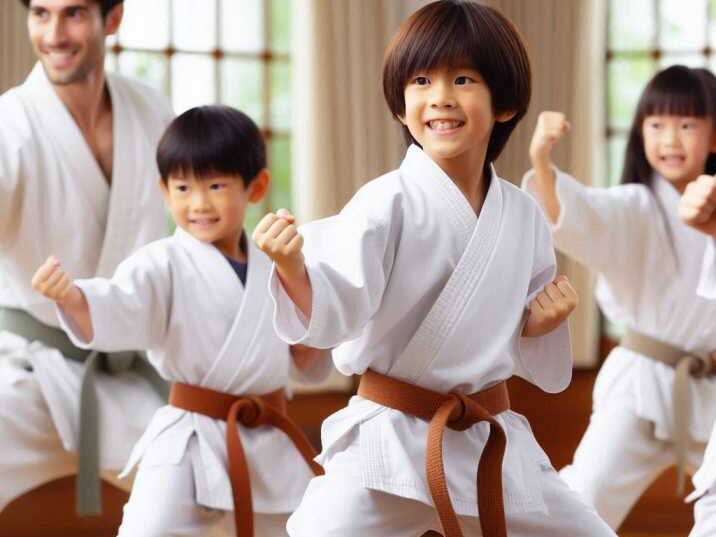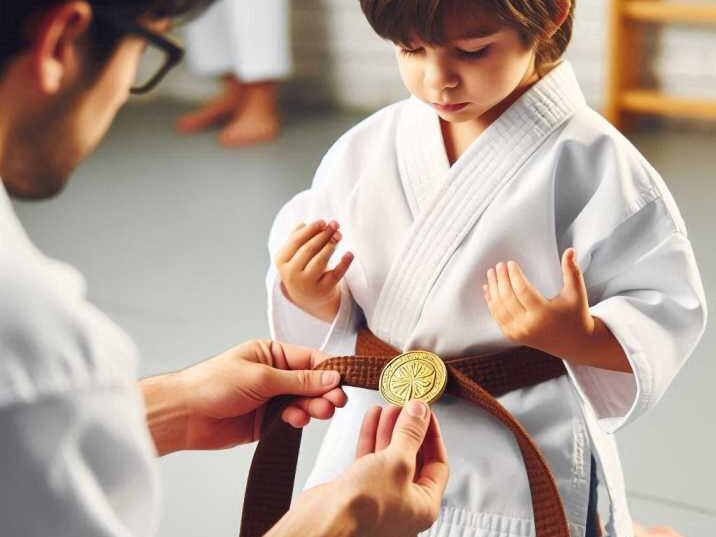Karate training offers numerous benefits for children, from improving physical fitness to enhancing mental focus and discipline. This article explores the advantages of karate training for children, explains how it can positively impact their lives and provides tips for parents considering enrolling their children in karate classes.
Introduction
Table of Contents
Karate is a popular martial art that combines physical activity with mental discipline. It is known for its structured training routines, which help children develop focus, discipline, and confidence. In the USA, many parents are turning to karate as a way to improve their children’s overall well-being. This article will delve into the numerous benefits of karate training for children and provide helpful information for parents interested in this activity.

The Benefits of Karate Training for Children
Physical Fitness and Health
Karate training is an excellent way for children to stay active and healthy. It involves various physical exercises that improve strength, flexibility, and endurance. Regular training helps children maintain a healthy weight, develop strong muscles, and improve cardiovascular health.
- Strength and Flexibility: Karate routines include exercises that enhance muscle strength and flexibility. These exercises often involve stretching, body-weight resistance, and dynamic movements that work for different muscle groups. Improved flexibility reduces the risk of injuries, while increased strength supports overall physical health.
- Cardiovascular Health: The aerobic nature of karate, with its continuous movement and intensity, helps improve heart health and stamina. Activities like sparring, drills, and kata (forms) elevate the heart rate, promoting cardiovascular fitness. Regular aerobic exercise is essential for a healthy heart and lungs.
Improved Focus and Concentration
Karate training requires concentration and discipline, which can translate to improved focus in school and other activities. The structured environment of a karate class helps children learn to pay attention and follow instructions carefully.
- Better Academic Performance: Studies have shown that children who practice martial arts tend to have better grades and improved behaviour in school. The discipline learned in karate classes helps children develop study habits and time management skills, contributing to academic success.
- Enhanced Attention Span: The repetitive nature of karate moves helps children develop a longer attention span. Practising techniques, forms, and drills repeatedly requires sustained focus, which can help children concentrate better on tasks in other areas of their lives.
Discipline and Self-Control
Karate emphasizes the importance of discipline and self-control. Children learn to follow rules, respect their instructors, and control their impulses. These skills are valuable both inside and outside the dojo.
- Respect for Authority: Karate students are taught to respect their instructors and peers, fostering a sense of respect for authority. This respect extends beyond the dojo, influencing how children interact with teachers, parents, and others in positions of authority.
- Impulse Control: The discipline required in karate helps children learn to control their emotions and actions. They are taught to think before acting, which helps them manage their impulses and respond to situations more calmly and thoughtfully.
Building Confidence and Self-Esteem
Karate helps children build confidence and self-esteem. As they progress through the ranks and earn new belts, they gain a sense of achievement and pride in their abilities.
- Sense of Achievement: Earning belts and mastering new techniques provide a sense of accomplishment. Each belt earned represents a significant milestone in a child’s karate journey, reinforcing the idea that hard work and perseverance lead to success.
- Positive Self-Image: Success in karate can boost a child’s self-esteem and help them develop a positive self-image. As children see their skills improve and receive recognition for their efforts, they gain confidence in their abilities, which can positively affect their self-esteem and overall outlook on life.
How to Get Started with Karate Training
Finding the Right Dojo
When looking for a karate school, it’s important to find one that is reputable and has experienced instructors. Parents should visit several dojos, observe classes, and ask questions to ensure they find the right fit for their child.
- Experienced Instructors: Look for dojos with certified and experienced instructors.
- Class Structure: Ensure the classes are well-structured and cater to children’s needs.
Understanding the Commitment
Karate requires a commitment from both the child and the parents. Regular attendance is crucial for progress. Parents should be prepared to support their child’s training schedule.
- Regular Attendance: Consistent training is essential for improvement.
- Parental Support: Encourage and support your child’s karate journey.
Table of Information: Benefits of Karate Training for Children
| Benefit | Description |
|---|---|
| Physical Fitness | Improves strength, flexibility, endurance, and cardiovascular health. |
| Focus and Concentration | Enhances academic performance and attention span. |
| Discipline | Teaches respect, impulse control, and self-discipline. |
| Confidence | Builds self-esteem and provides a sense of achievement. |
Conclusion
Karate training offers a wealth of benefits for children, from improving physical health to enhancing mental focus and discipline. By enrolling in karate classes, children can develop important life skills that will benefit them both inside and outside the dojo. For parents, finding the right dojo and supporting their child’s training can lead to a rewarding experience.

FAQs
1. What age can children start karate training?
Children as young as 4 years old can start karate training, depending on the dojo’s policies.
2. How often should children attend karate classes?
It’s recommended for children to attend karate classes at least twice a week to see consistent progress.
3. Is karate safe for children?
Yes, karate is generally safe for children when taught by qualified instructors who follow safety guidelines.
4. Can karate help with a child’s behaviour?
Yes, the discipline and focus learned in karate can positively impact a child’s behaviour at home and in school.
5. Do children need special equipment for karate?
Basic karate training requires a uniform (gi) and a belt. As children progress, additional protective gear may be needed.


